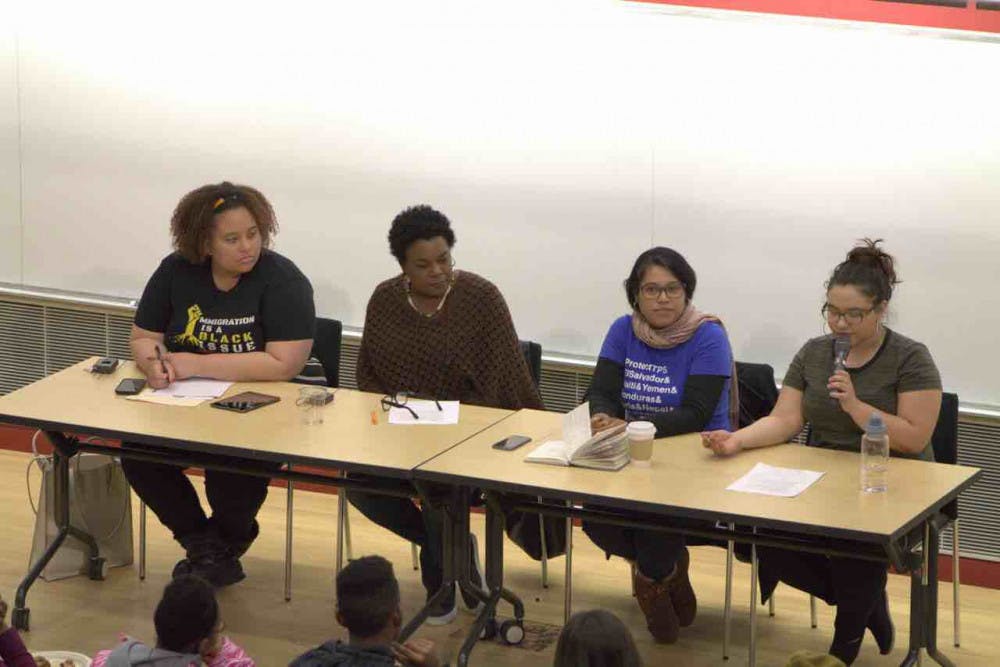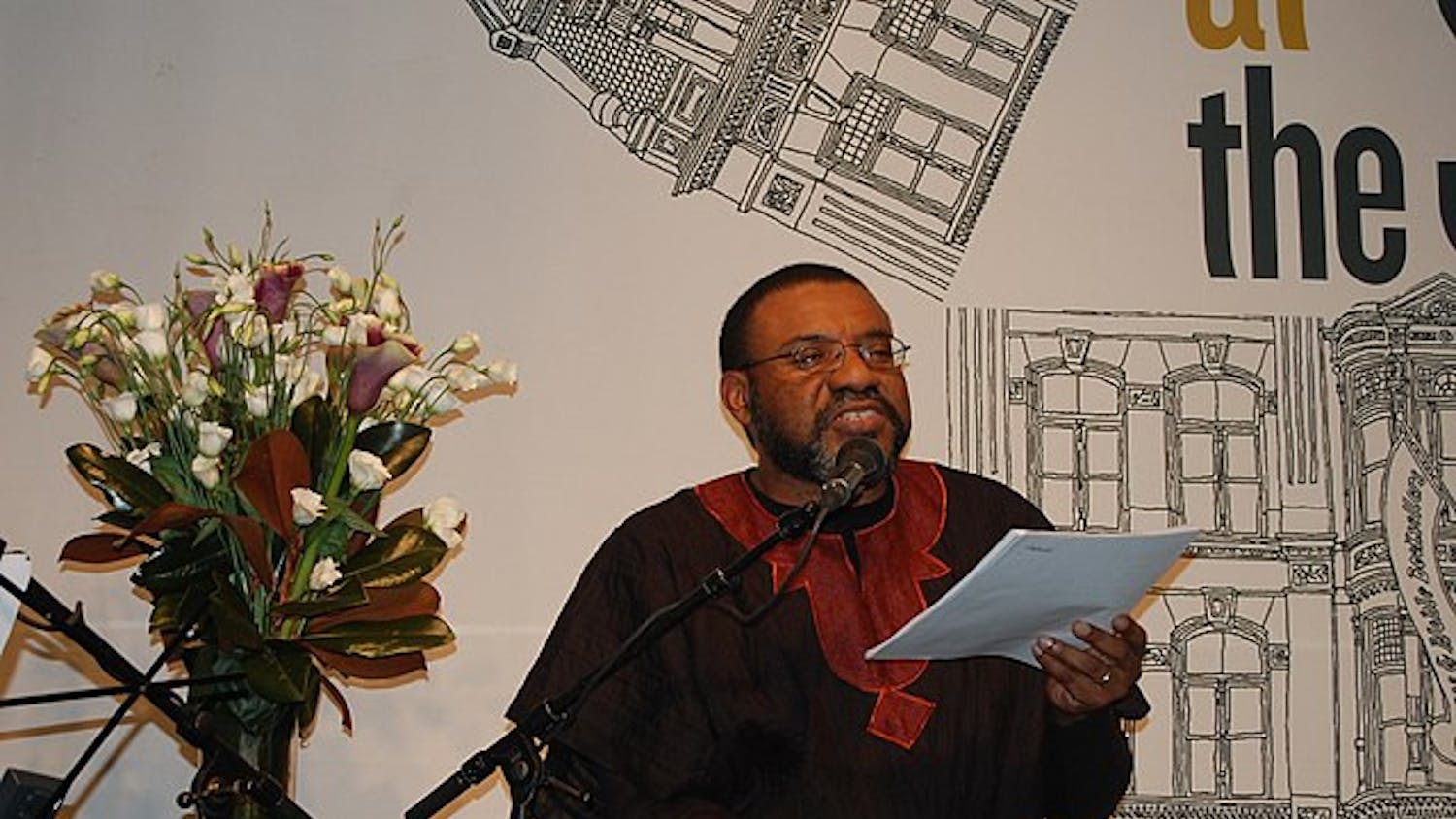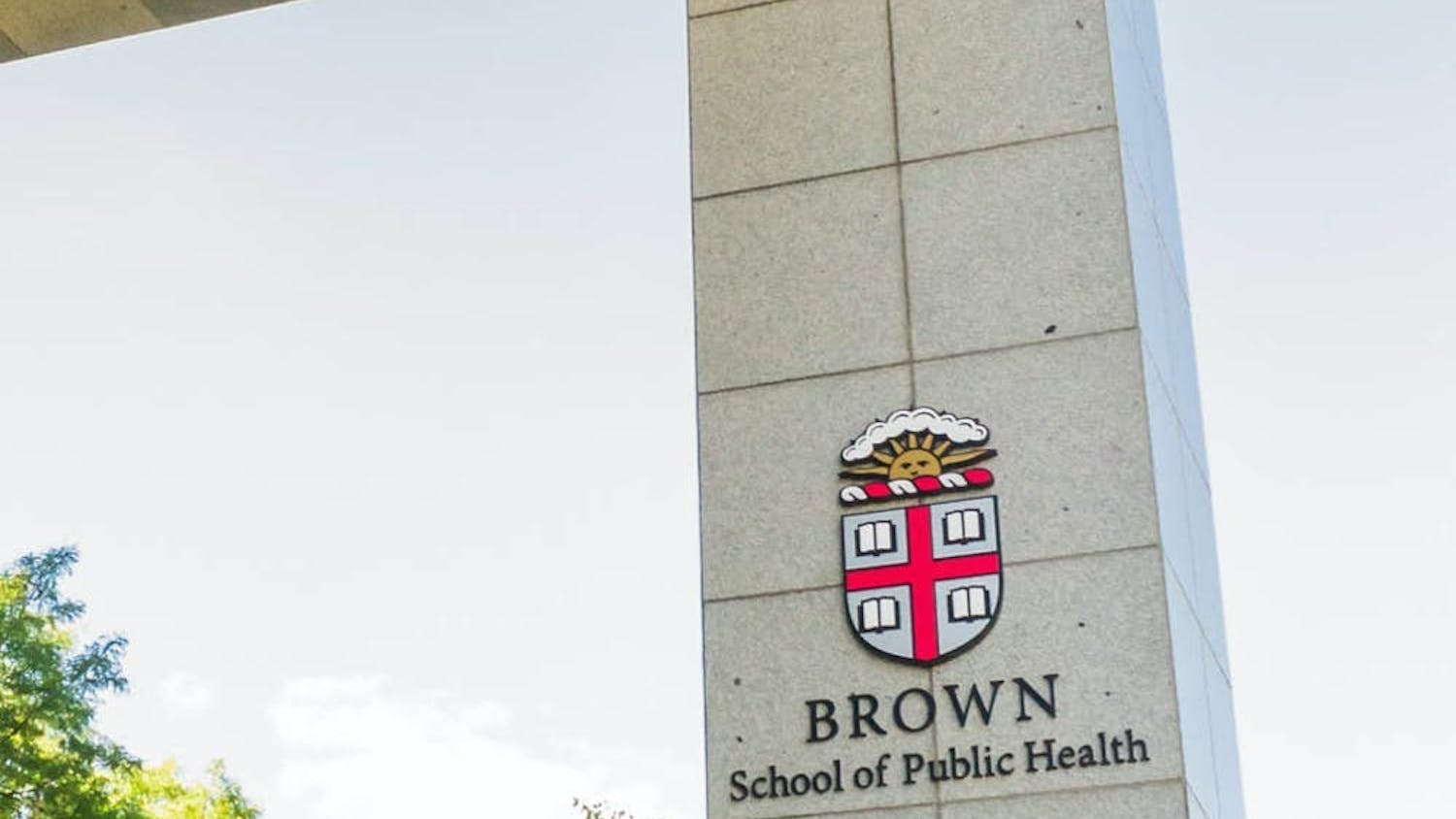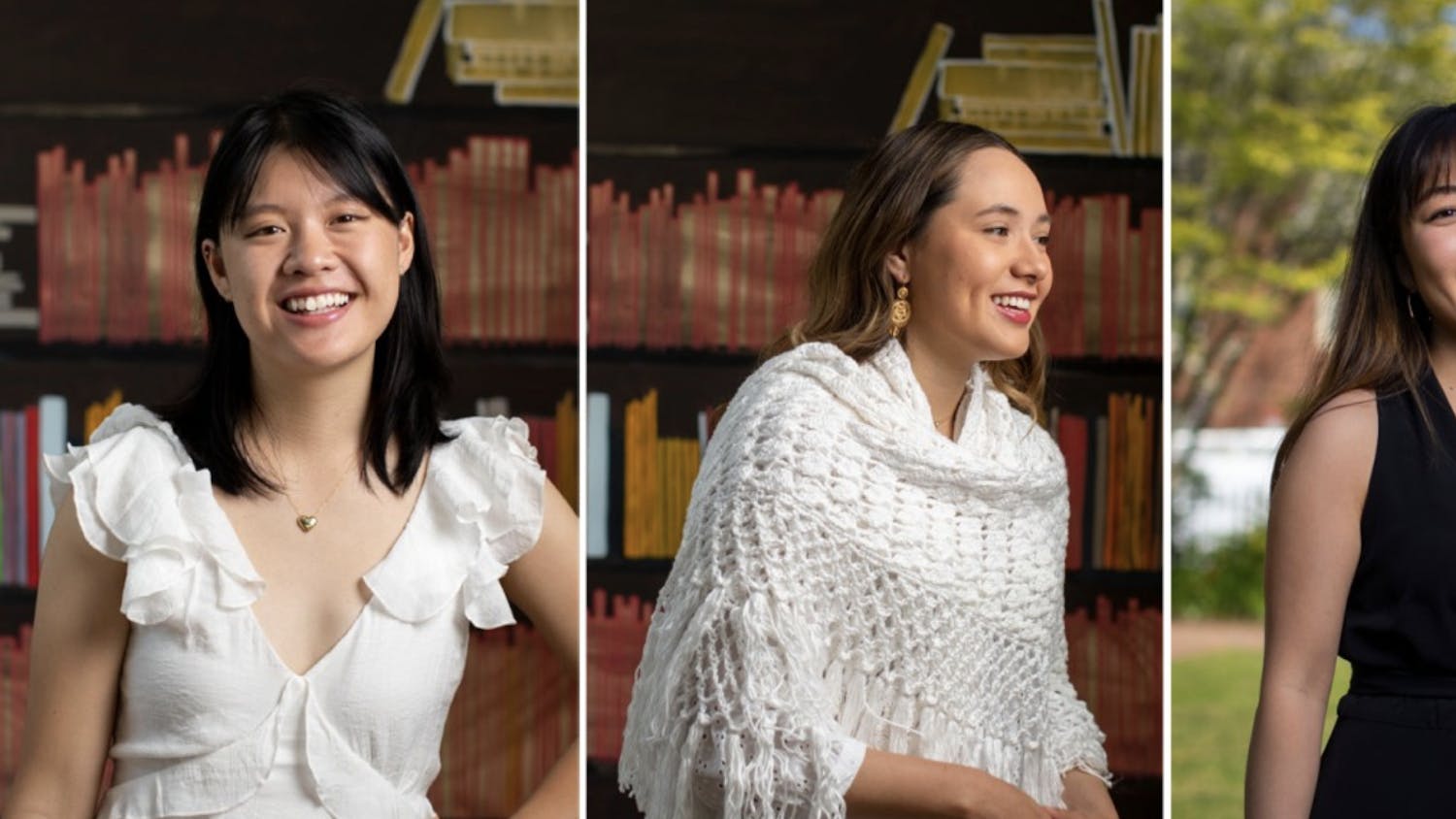The Central American United Student Association organized a Temporary Protective Status Teach-In Panel Monday evening as a part of CAUSA’s inaugural Central American Series. Moderated by Andrea Flores, assistant professor of education, the panel featured prominent community organizers who were invited to address a variety of issues related to TPS, including comprehensive immigration reform and intersectional immigration advocacy.
Created by the U.S. Congress in 1990, TPS is an immigration status that suspends the deportation of individuals from nations “destabilized by war or catastrophe,” as the Washington Post previously reported. The status, which lasts up to 18 months, provides foreign nationals with the ability to obtain “work authorization and a driver’s license,” according to the Post. The Trump administration announced in January its decision not to renew TPS for Salvadorans, the largest group of TPS holders.
CAUSA chose to organize a teach-in on TPS because “our communities are being affected, they’re really struggling and we need to bring awareness to it,” said Maryori Conde ’18, who founded CAUSA in 2016. The lack of awareness on this issue extends even to lawmakers, she added. “When we call our Congress members, we always have to educate them on what TPS is because they never know what it is.”
In today’s political climate, there is a need for a continued dialogue on this often overlooked issue, Conde said. “A couple of us went to the (Save TPS National) Conference, and when we got back, we tried to get members from CAUSA and members from (the Brown Immigrant Rights Coalition) to continue the conversation,” she added.
The invited panelists represented a diverse range of communities: Patrice Lawrence, the national policy and advocacy director for the UndocuBlack Network; Ninaj Raoul, the co-founder and community organizer at Haitian Women for Haitian Refugees; and Veronica Giron, a TPS-holder, activist and labor union representative. “Only one of the panelists is Central American, one is Jamaican and one is Haitian. … They’re all part of the TPS alliance,” Conde said, adding that TPS is a “Central American narrative, but it’s not just a Central American issue.”
During the event, the panelists stressed the importance of comprehensive immigration reform. Giron, who had Conde translate her words from Spanish into English, said that many TPS-holders seek security and certainty in the future of their immigration status. “It’s good to be grateful, but know that it’s temporary. That’s why they call it Temporary Protected Status,” Raoul said. People “get comfortable when they see that it’s extended over and over a few times,” she added.
Raoul said the Trump administration’s recent decision to terminate TPS for Haitians made TPS holders realize “that it is important to start organizing for a more permanent solution.”
After TPS ends for a specific country, the “entire community will lose their protection,” Lawrence said. Community members will be unable to enter government buildings, health facilities and any locations requiring government identification for entrance.
The panelists also spoke about TPS from a humanitarian perspective, highlighting the uncertainty that families face from the program’s potential end. Because many families consist of members with different immigration statuses, the permanent termination of TPS would split them apart. “A lot of families are (of) mixed-status, and there are continuously attacks to that,” Lawrence said.
The panel also discussed the importance of education and activism. Raoul said it is important that TPS holders are given the platform to speak on their circumstances. “In any movement, it has to be led by the people directly affected,” she said.
These “human voices” are necessary to educate the public and raise awareness, Raoul added.
The panelists encouraged attendees to look within their immediate communities for solidarity and strength. Effective activism means understanding the events unfolding locally and starting from the bottom to work upwards, Giron said.
“Just let people feel comfortable enough to know that they can come to you, and they can talk to you. It will be a slow process, and you won’t see the results right away. But it makes a world of difference,” Lawrence said.
The TPS Teach-In Panel is one of two events in CAUSA’s Central American Series, with another event titled “Social Activism through Social Media” on April 12. The series is both a celebration of Central American cultures and a display of resilience, Conde said.





